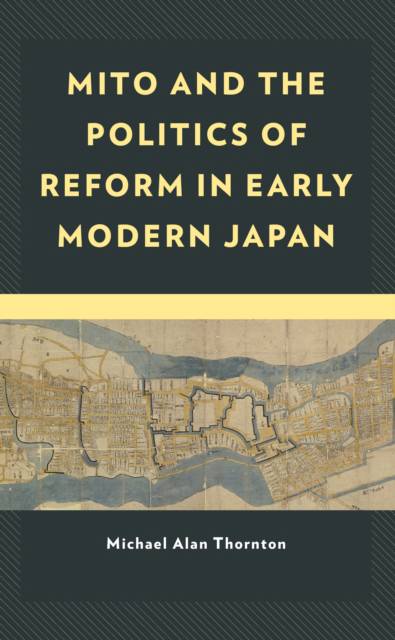
- Afhalen na 1 uur in een winkel met voorraad
- Gratis thuislevering in België vanaf € 30
- Ruim aanbod met 7 miljoen producten
- Afhalen na 1 uur in een winkel met voorraad
- Gratis thuislevering in België vanaf € 30
- Ruim aanbod met 7 miljoen producten
Zoeken
Mito and the Politics of Reform in Early Modern Japan
Michael Alan Thornton
€ 69,45
+ 138 punten
Uitvoering
Omschrijving
This book takes the perspective of Mito Domain, one of three branches of Japan's ruling Tokugawa shogunate, to explore the dynamic history of political reform in early modern Japan. This book, while grounded in Mito, examines the role that this domain and its people played in the birth of the modern Japanese nation-state in the nineteenth century.
Specificaties
Betrokkenen
- Auteur(s):
- Uitgeverij:
Inhoud
- Aantal bladzijden:
- 264
- Taal:
- Engels
- Reeks:
Eigenschappen
- Productcode (EAN):
- 9781793641915
- Verschijningsdatum:
- 22/08/2023
- Uitvoering:
- Paperback
- Formaat:
- Trade paperback (VS)
- Afmetingen:
- 152 mm x 229 mm
- Gewicht:
- 358 g

Alleen bij Standaard Boekhandel
+ 138 punten op je klantenkaart van Standaard Boekhandel
Beoordelingen
We publiceren alleen reviews die voldoen aan de voorwaarden voor reviews. Bekijk onze voorwaarden voor reviews.







